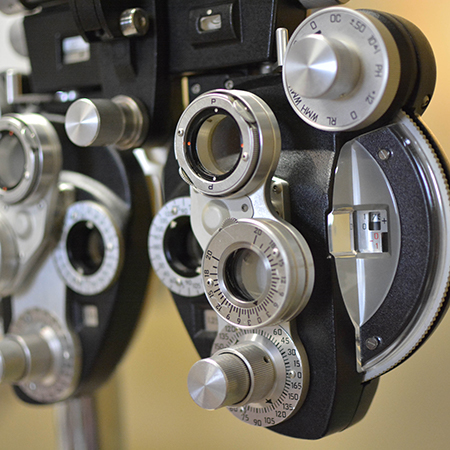
Eye Exams

At Lafayette Family Eye Care, your family's vision and eye health is our top priority. That's why we conduct comprehensive eye exams for all ages and generations, including pediatrics. With the skill and technology to detect problems that a simple eye screening can miss, Drs. Piccione and Lukasko can provide your family with a comprehensive treatment plan based on your eye condition.
Our exams:
- Measure your visual acuity, or how sharp your vision is, using a high definition visual acuity system.
- Measure how well light refracts in your eyes, which largely affects how well you see, using a retinoscope. Common refractive errors include myopia, hyperopia, astigmatism, and presbyopia.
- Measure your eye muscle strength and alignment by having you follow an object with your eyes to uncover any eye movement restrictions, weaknesses, or tracking problems.
- Measure eye alignment using a cover test, where your doctor will ask you to cover one eye at a time and focus on objects to check for signs of strabismus or amblyopia.
- Measure your eye pressure using a tonometer to identify signs of glaucoma.
- Scan the interior and exterior structures of your eye, including your eyelids, eyelashes, lens, cornea, iris, conjunctiva, and the anterior chamber using a slit lamp.
- Identify signs of eye disease, or lack thereof, through pupil dilation, which temporarily blurs your vision.
When Should You Have Your Eyes Examined?
It is always important to follow the recommendations of your doctor regarding an eye exam schedule. Otherwise, you should see your eye doctor once a year if you are over the age of 40, wear glasses or contacts, or have an eye condition. If your eyes are healthy and you don't use any form of vision correction, you should see the eye doctor every 2-3 years unless otherwise directed by your physician.
All children should have a dilated eye exam between the ages of three and four, or sooner if you are concerned about any ocular symptoms. Children that don't use vision correction or have any eye conditions should have an eye exam every two years throughout their school years. For more information on the pediactric eye exam schedule, check out our Pediatric Eye Care page.